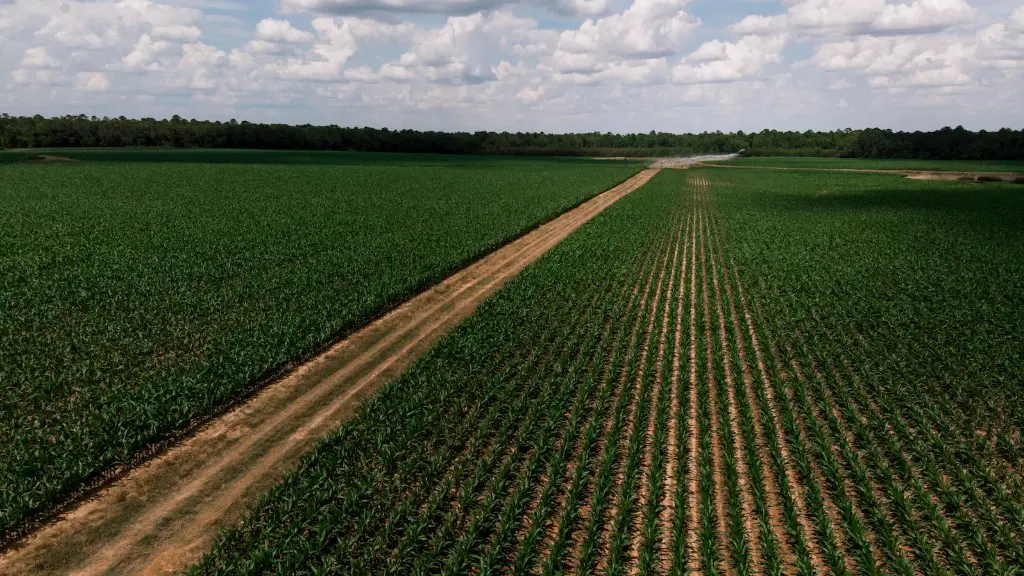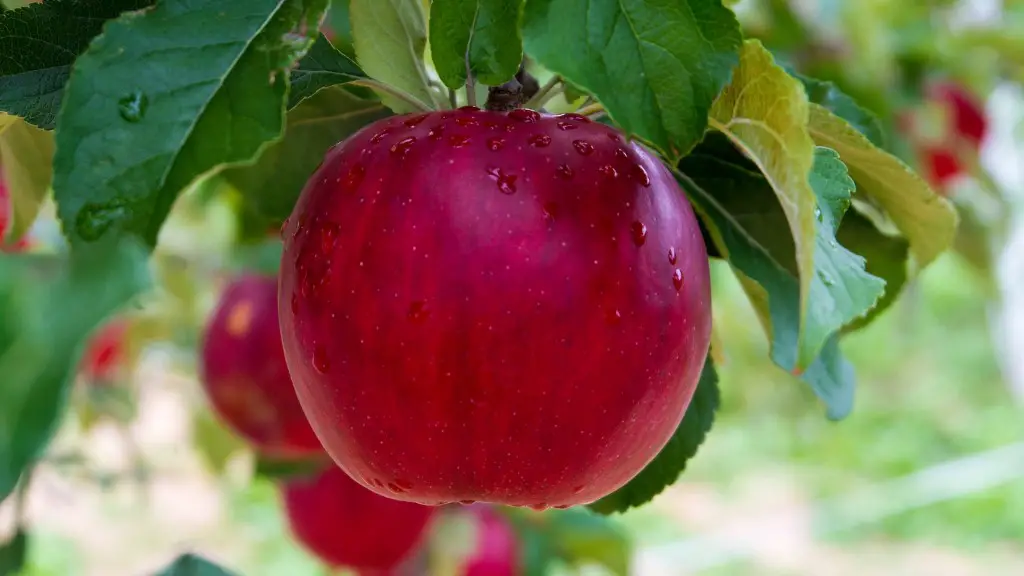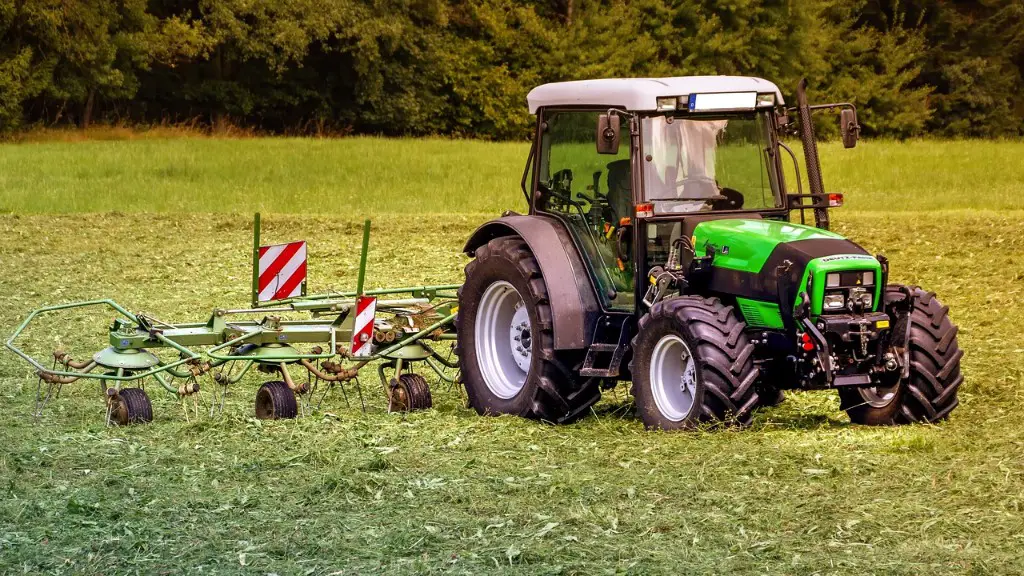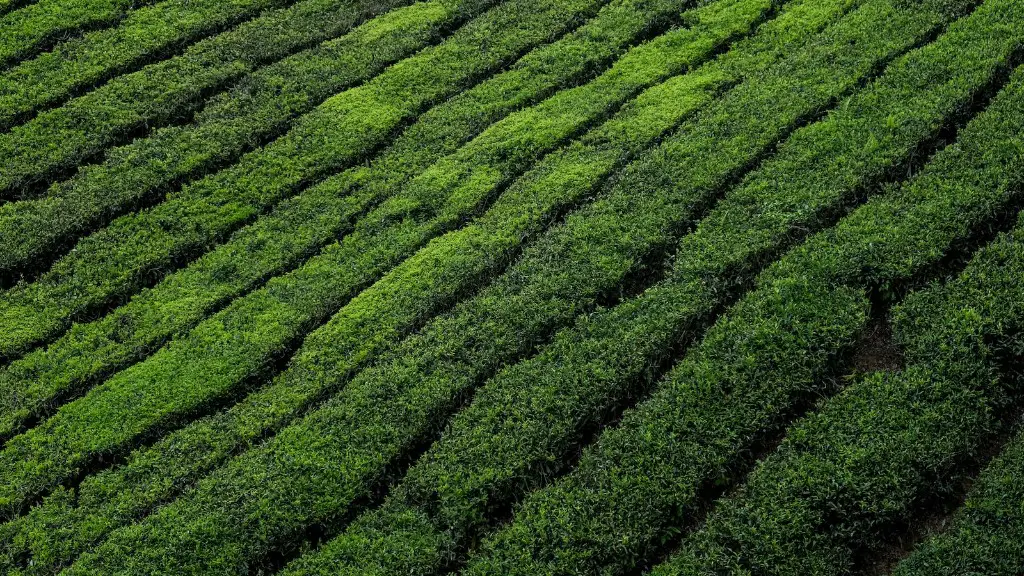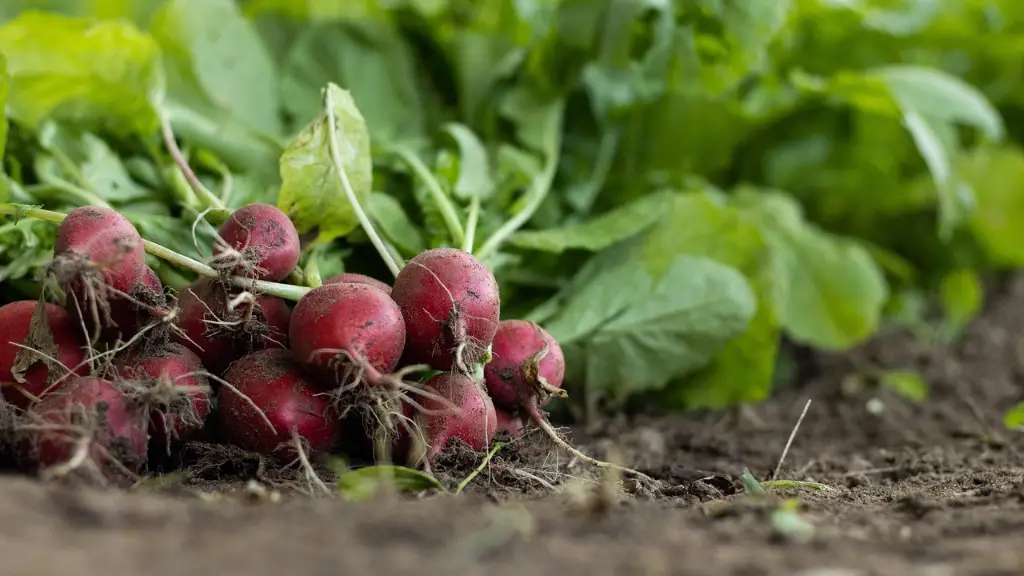Climate change is having an alarming impact on agriculture across the globe. Warming temperatures and increasingly severe weather events are undermining the natural cycles and processes that are essential to productive and sustainable food production. This can result in reduced yields, higher production costs, and greater vulnerability to crop failure, land degradation, and food insecurity. Here, we take a look at the stark reality of how climate change is affecting modern-day agricultural cycles.
Firstly, rising temperatures are leading to droughts, floods, and other extreme weather events, which are becoming more frequent in many areas and reducing crop yields. This is especially evident in developing countries, where farmlands are often located on marginal lands and rely on subsistence farming. Moreover, even areas with excellent irrigation systems are increasingly affected by lack of water due to higher temperatures and reduced rainfall. This can lead to plants not being able to access adequate moisture, resulting in stunted growth and reduced yields.
Secondly, higher temperatures are also leading to soil degradation. As temperatures increase, the rate of natural decomposition accelerates. This means that soil moisture is lost more quickly and soils become depleted of the vital nutrients that are necessary for good crop yields. This can lead to reduced agricultural yields, or worse, crop failure.
Thirdly, extreme weather events such as droughts and floods can lead to an increased spread of agricultural diseases and pests. This can lead to reduced yields and higher production costs, as farmers are forced to invest in costly pest control measures. In addition, changes in the distribution of pests can lead to the introduction of new pests, which can be difficult to combat as they are often unfamiliar to farmers.
Fourthly, melting glaciers and changes in sea level are impacting the availability and quality of water for agricultural use. For example, in many coastal areas, saltwater can infiltrate fresh groundwater and decrease the quality of soil and water for irrigation. This can lead to reduced yields and increased production costs, as farmers must invest in expensive water purification systems.
Impacts of climate change on food security
Climate change is having a severe impact on food security, with extreme weather events leading to crop loss and price hikes, creating food scarcity and malnutrition in already vulnerable communities. Our increasingly unpredictable weather patterns and rising sea levels are also contributing to food insecurity, as rising temperatures can cause droughts and flooding in agricultural areas, leading to crop failure and the displacement of entire communities. In some cases, the most affected communities are those that are least able to cope with the effects of climate change, including those in low-income countries and regions.
In addition to physical impacts, climate change can also have psychological and social impacts on food security. For example, the fear of extreme weather events and crop failure can cause changes in food consumption patterns and reduce people’s access to food. In some cases, this can lead to heightened levels of anxiety and depression, as well as reduced human capital to adapt to the challenges posed by climate change.
Lastly, climate change can also have severe economic impacts on food security. Increasing temperatures and severe weather events can lead to reduced agricultural yields, which can create food scarcity. This can lead to higher prices for food, making it more difficult for households to access affordable food. In addition, increased production costs due to extreme weather can also lead to a decrease in farmers’ incomes, making it more difficult for them to invest in sustainable farming practices.
Impacts of climate change on agricultural production
Climate change is having a devastating impact on agricultural production, with global warming leading to higher temperatures, droughts, and other extreme weather events that can reduce crop yields and cause crop failure. In addition, melting glaciers and sea level rise can reduce the availability and quality of water for irrigation and threaten coastal agricultural areas. These impacts are compounded by reduced soil moisture, soil degradation, and a greater spread of pests and diseases, all of which can lead to reduced yields and higher production costs.
Furthermore, climate change is also having an impact on the availability of agricultural inputs, such as fertilizers, pesticides, and seeds, which are essential for agricultural production. In many developing countries, the cost of agricultural inputs is increasing due to higher temperatures, droughts, and other extreme weather events. This can reduce farmers’ ability to access essential inputs and lead to reduced yields and higher production costs.
In addition, climate change is also threatening the availability of agricultural labor, which is essential for food production. Rising temperatures and extreme weather events can reduce farmers’ ability to access labor for production and maintenance, leading to reduced yields and increased costs. This is especially evident in developing countries, where labor is often scarce and can be difficult to access due to extreme weather events.
Finally, climate change is also having an impact on the quality of agricultural products. For example, increased temperatures can lead to the accumulation of toxins in food, which can cause health problems when consumed. Moreover, changes in temperature can also impact the taste and nutritional content of food, leading to reduced nutrition and reduced consumer demand.
Impacts of climate change on agricultural infrastructure
In addition to its impacts on agricultural production, climate change is also having an impact on agricultural infrastructure, such as irrigation systems, storage facilities, and food transportation networks. As temperatures rise and extreme weather events become more frequent, agricultural infrastructure is increasingly at risk of failure, leading to reduced yields and higher production costs.
In many developing countries, agricultural infrastructure is often inadequate and vulnerable to the effects of climate change. For example, in many sub-Saharan African countries, agricultural infrastructure is often poorly maintained and subject to frequent breakdowns due to extreme weather events. In addition, rising sea levels are also threatening the stability of infrastructure in coastal areas, as saltwater can infiltrate freshwater systems.
Furthermore, climate change can also lead to reduced access to agricultural inputs, such as fertilizers and pesticides, as transportation networks become increasingly disrupted by extreme weather events. This can further reduce agricultural yields and increase production costs, as it becomes more difficult and expensive to access essential inputs.
Lastly, climate change is also leading to the displacement of rural communities, as increasing temperatures and extreme weather events cause farmers to move in search of safer and more productive lands. This can further undermine agricultural production, as many farmers are not able to access the necessary skills and knowledge to succeed in new lands.
Impacts of climate change on food prices
Climate change is also having an impact on food prices, with extreme weather events leading to crop loss, food scarcity, and price hikes, which can diminish households’ access to affordable food. In many cases, the most affected households are those that are least able to cope with rising costs, including low-income households. In addition, increased transportation costs due to disruptions in transportation networks can also lead to higher food prices, as it becomes more difficult and expensive to move food to consumers.
In addition, climate change can also lead to reduced demand for agricultural products, as changes in temperature can change the taste and nutritional content of food, leading to reduced consumer demand. This can lead to price volatility and reduced returns for producers, as prices decrease and farmers struggle to make a profit.
Furthermore, climate change is also reducing the availability of agricultural labor, as extreme weather events may cause workers to migrate in search of work. This can lead to higher production costs for farmers, as it becomes more difficult to access the labor necessary for production and maintenance.
Finally, climate change is leading to an increased spread of agricultural diseases and pests, which can lead to reduced yields and higher production costs. In addition, higher temperatures can cause plants to stress, resulting in reduced yield and reduced diets. This can lead to higher food prices, as it becomes more expensive and difficult to access affordable food.
Impacts of climate change on farming communities
Climate change is having a devastating impact on farming communities, with rising temperatures and extreme weather events leading to reduced yields, crop failure, and the displacement of entire communities. In addition, higher costs due to increased input prices, reduced access to labor, and disruptions in transportation networks can further undermine farm incomes and reduce farmers’ ability to invest in sustainable farming practices.
Furthermore, climate change is also reducing access to essential resources and inputs, as droughts, floods, and other extreme weather events can decrease the availability of water for irrigation and other purposes, reduce soil moisture and fertility, and increase the spread of agricultural pests and diseases. This can lead to reduced yields and higher production costs for farmers, as it becomes more difficult and expensive to access essential inputs.
In addition, reduced yields and increased production costs due to climate change can also lead to higher prices for consumers and reduced access to affordable food. This can have a negative impact on vulnerable populations, as it is often the most affected households that are least able to cope with the increased costs.
Finally, climate change can also have psychological and social impacts on farming communities, as the fear of extreme weather events and crop failure can lead to changes in food consumption patterns and heightened levels of anxiety, depression, and stress. This can lead to decreased motivation, reduced investment in sustainable agriculture, and overall reduced economic growth.
